Goodwill continues to spread
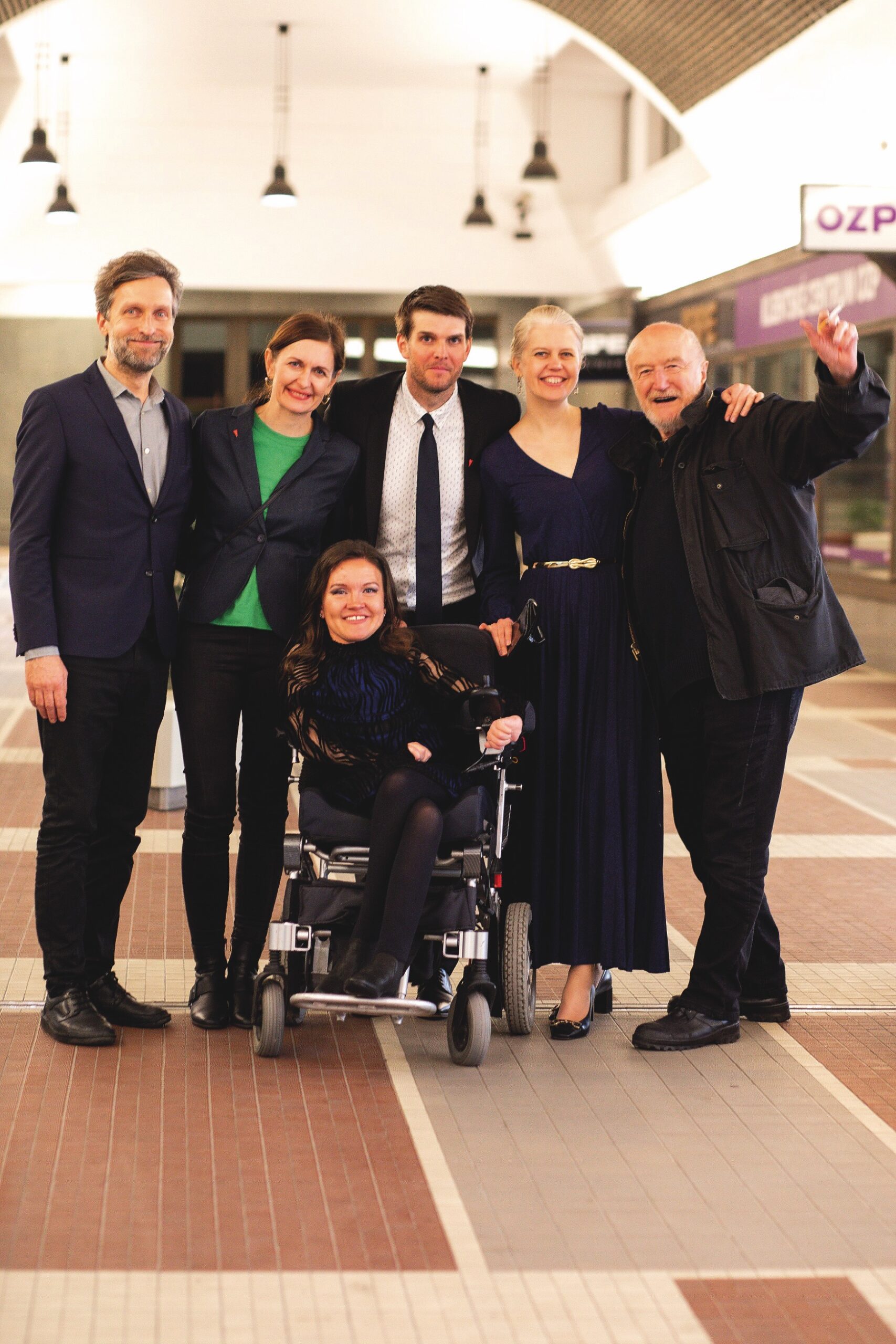
Monika Granja together with Dita Horochovská, Olga Havlová Award laureate, organized a ceremonial benefit concert at the Czech National Bank to mark what would have been Olga Havlová’s 90th birthday
Text: Martina Hošková and M. Zisso; Photo: Archive
To begin, could you tell us a bit about yourself?
I am originally from Lithuania, but I’ve been living in the Czech Republic for over 30 years. I enjoy travelling, reading, listening to music, and, of course, spending time with my dog Bertík, who brings a lot of joy into my life. I’m also interested in sustainable living, and try to incorporate environmentally friendly habits into my everyday life.
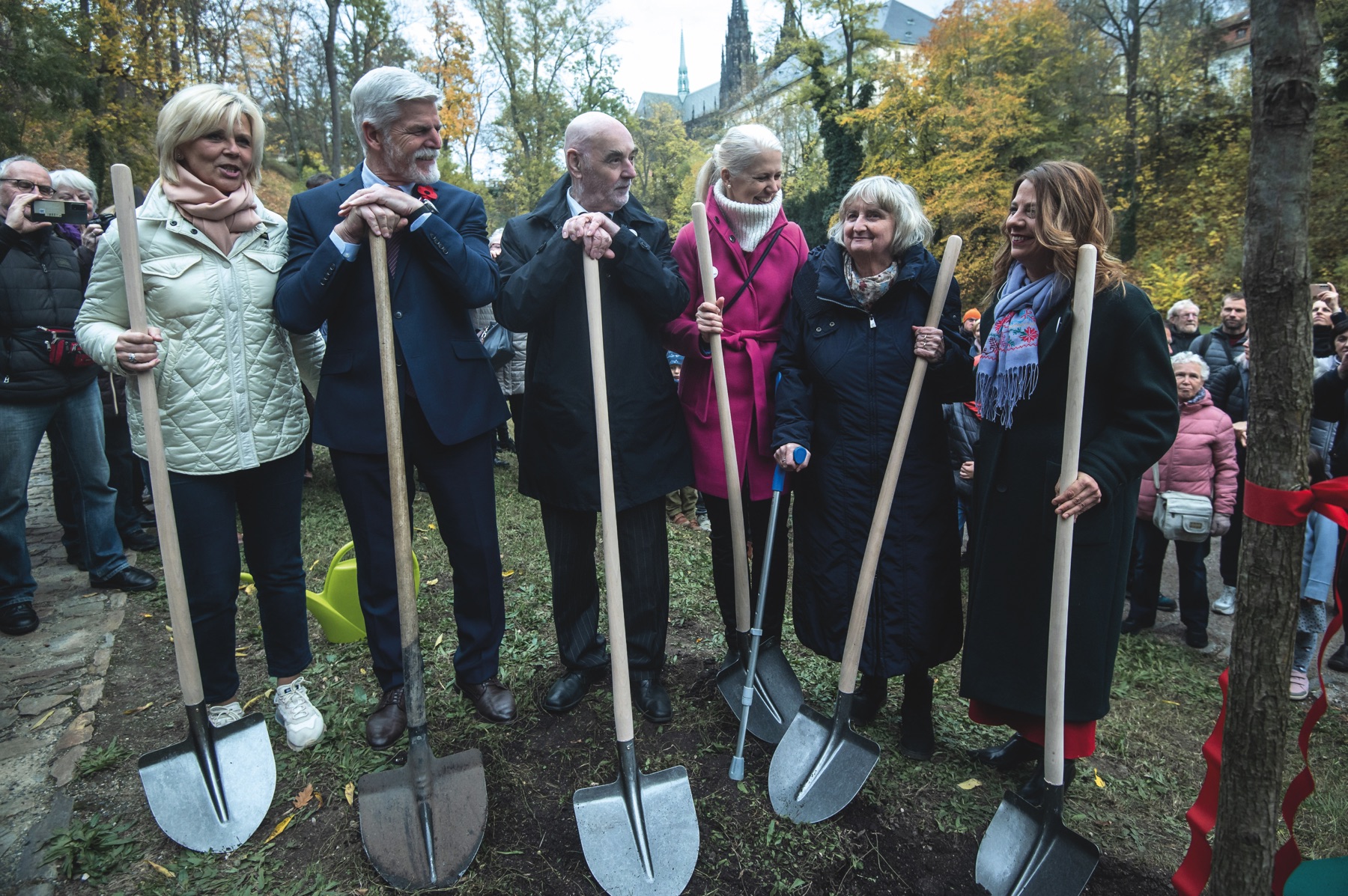
The ceremonial planting of the Olga Havlová Tree at Prague Castle was attended by President Petr Pavel and his wife Eva Pavlová, famous singer and foundation patron Aneta Langerová (first from the right), and Olga Havlová’s friend Anna Freimanová (second from the right). November 10, 2023, Deer Moat, Prague Castle. Photo: Anna Šolcová
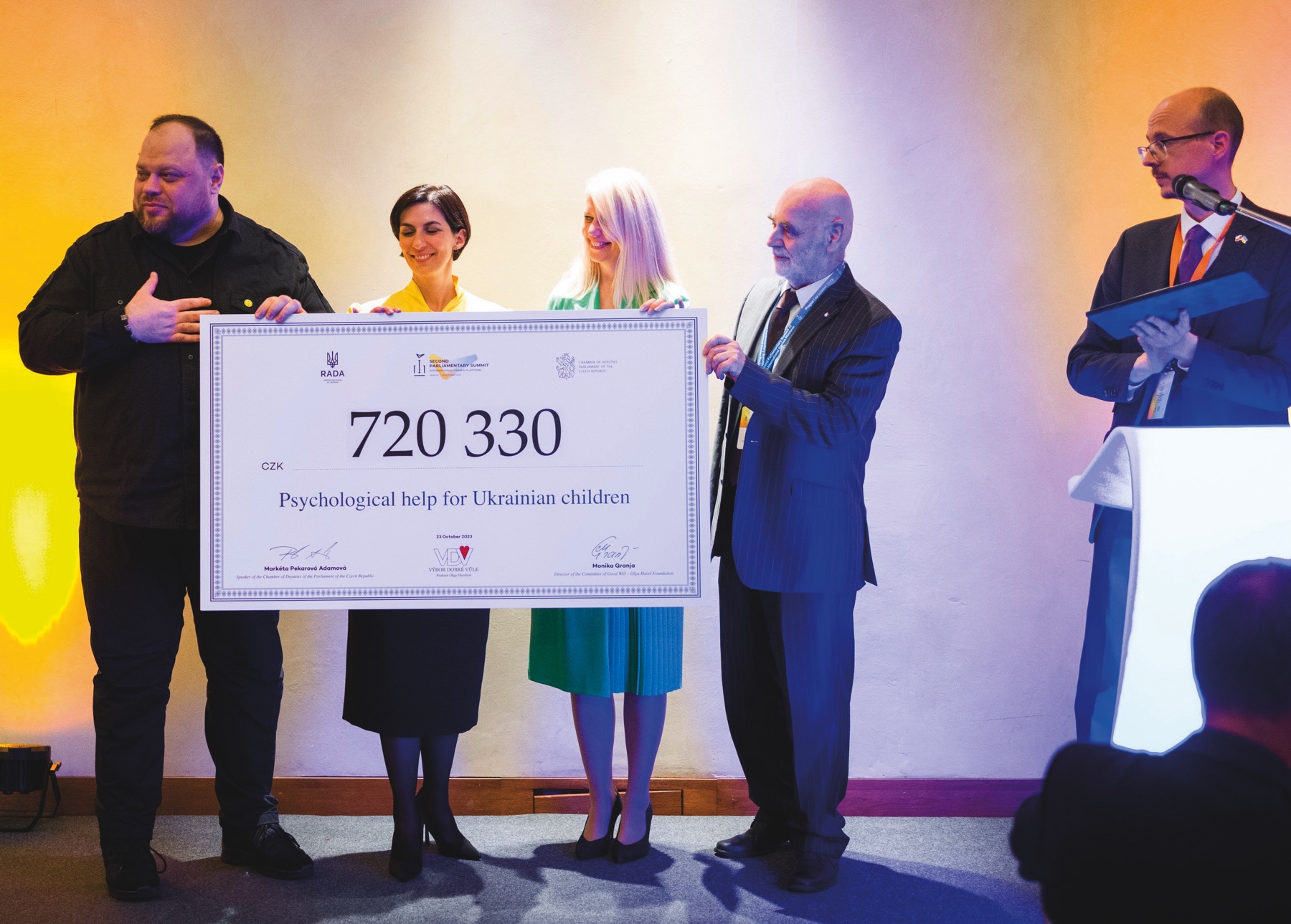
Speaker of the Chamber of Deputies Markéta Pekarová Adamová and Monika Granja present the proceeds from a fundraiser for psychological assistance for Ukrainian children to Ruslan Stefanchuk, Chairman of the Ukrainian Parliament. Parliamentary Summit of the International Crimea Platform, October 23, 2023, Ball Game Hall of Prague Castle. Photo: Archive of the Committee of Good Will
Tell us about the foundation.
It has been almost 20 years since I began working for the Committee of Good Will – Olga Havel Foundation. One of the first non-profit organisations established after the Velvet Revolution, it was founded by Olga Havel together with her friends from the dissident movement. In the early years, when the civic sector was just being formed, our activities were very broad – from delivering humanitarian aid from abroad, to supporting hospitals and institutions, as well as helping individuals directly.
Today, our work is more focused, but we continue to provide assistance throughout the Czech Republic, supporting both organisations and individuals.
What is unique about the foundation’s activities?
We follow Olga Havel’s principle: to help where no one else helps, or where help is insufficient. Our aid is always quick and targeted – as the saying goes, he who gives quickly, gives twice.
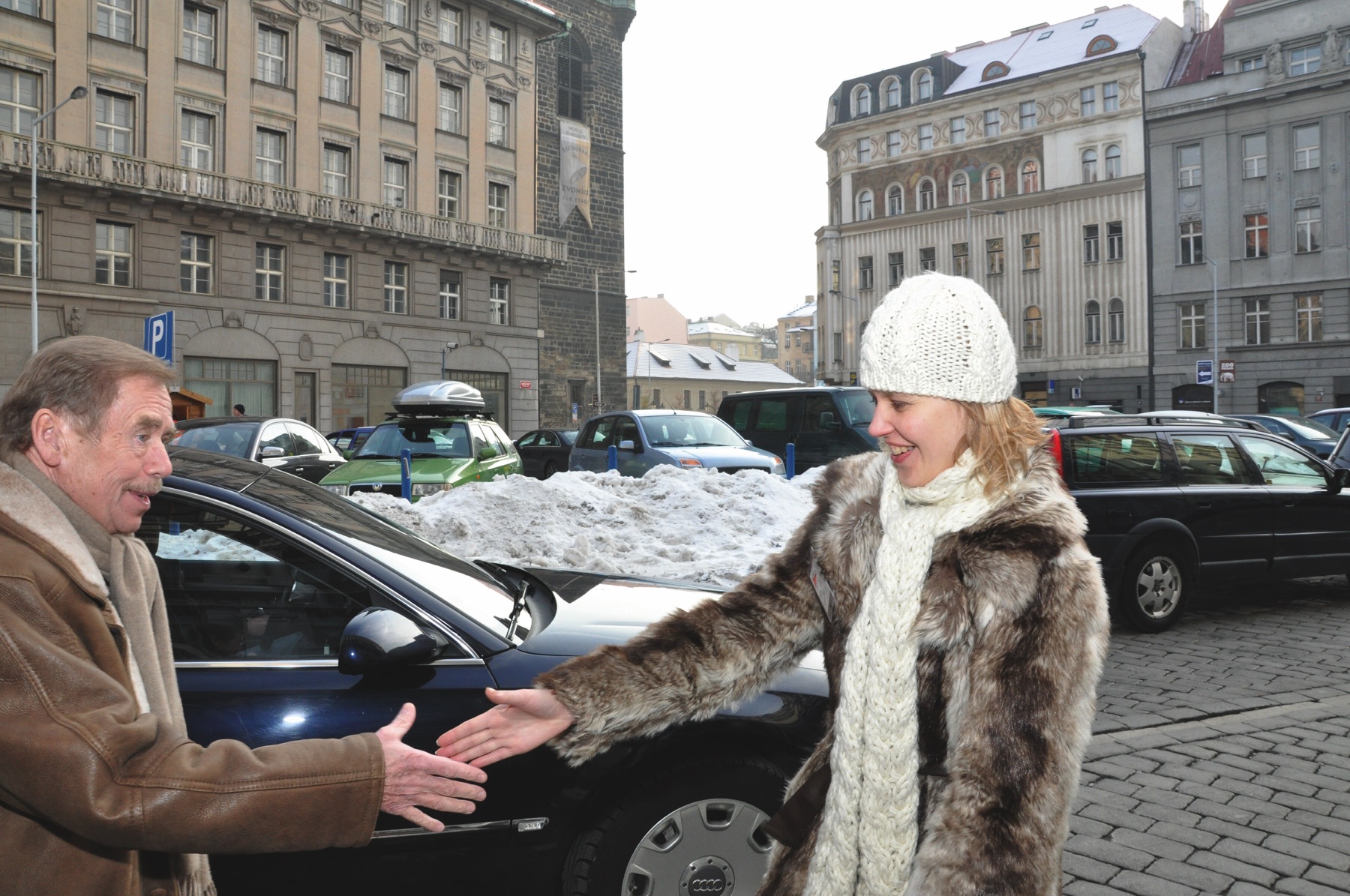
Monika Granja welcomed Václav Havel during the ceremonial unveiling of a commemorative plaque for Olga Havlová at Prague´s Senovážné Square, at the building housing the headquarters of the Committee of Good Will, where Olga Havlová also worked. Photo: Zdeněk Chrapek
This year marks the 35th anniversary of the Committee of Good Will. Can you share some highlights?
Over the past 35 years, we’ve distributed almost one billion CZK and have helped over 60,000 people in need. Many of our key projects still carry Olga Havel’s personal legacy – such as “Paths to Integration” for people with disabilities, the Education Fund supporting disadvantaged students, and our Senior Program. As society evolves, our assistance evolves too. In recent years, we’ve expanded our work to include support for palliative care, help for homeless people, and psychological support for children from Ukraine. We’re also actively involved in developing civil society – through a consortium with the OSF Foundation and the Scout Institute, we’ve supported various projects, with a total of 300 million CZK.
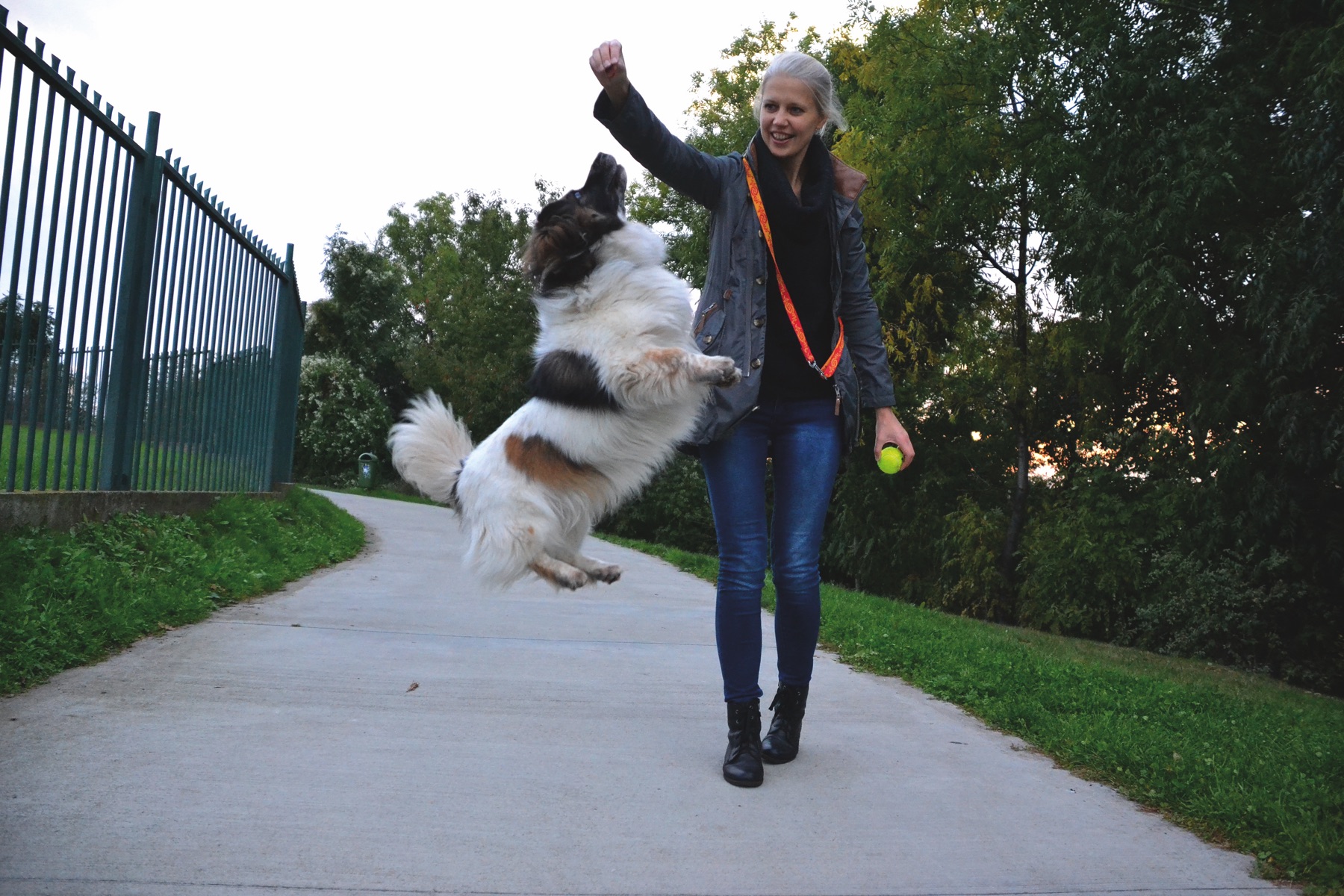
Walks with her dog Bertík bring much joy and relaxation. Photo: Karolina Granja
You are from Vilnius, Lithuania. Why did you choose to settle in the Czech Republic?
I came to what was then Czechoslovakia after finishing high school in Vilnius. I was awarded a scholarship to study law at university, with the condition that I learn Czech and pass the entrance exams in the Czech language within a year. So, I spent a year at the language and professional preparation centre in the castle in Poděbrady and then successfully passed the entrance exams for the Faculty of Law at Charles University. Interestingly, I later found out that Václav Havel and Miloš Forman had studied at the same castle years before me.
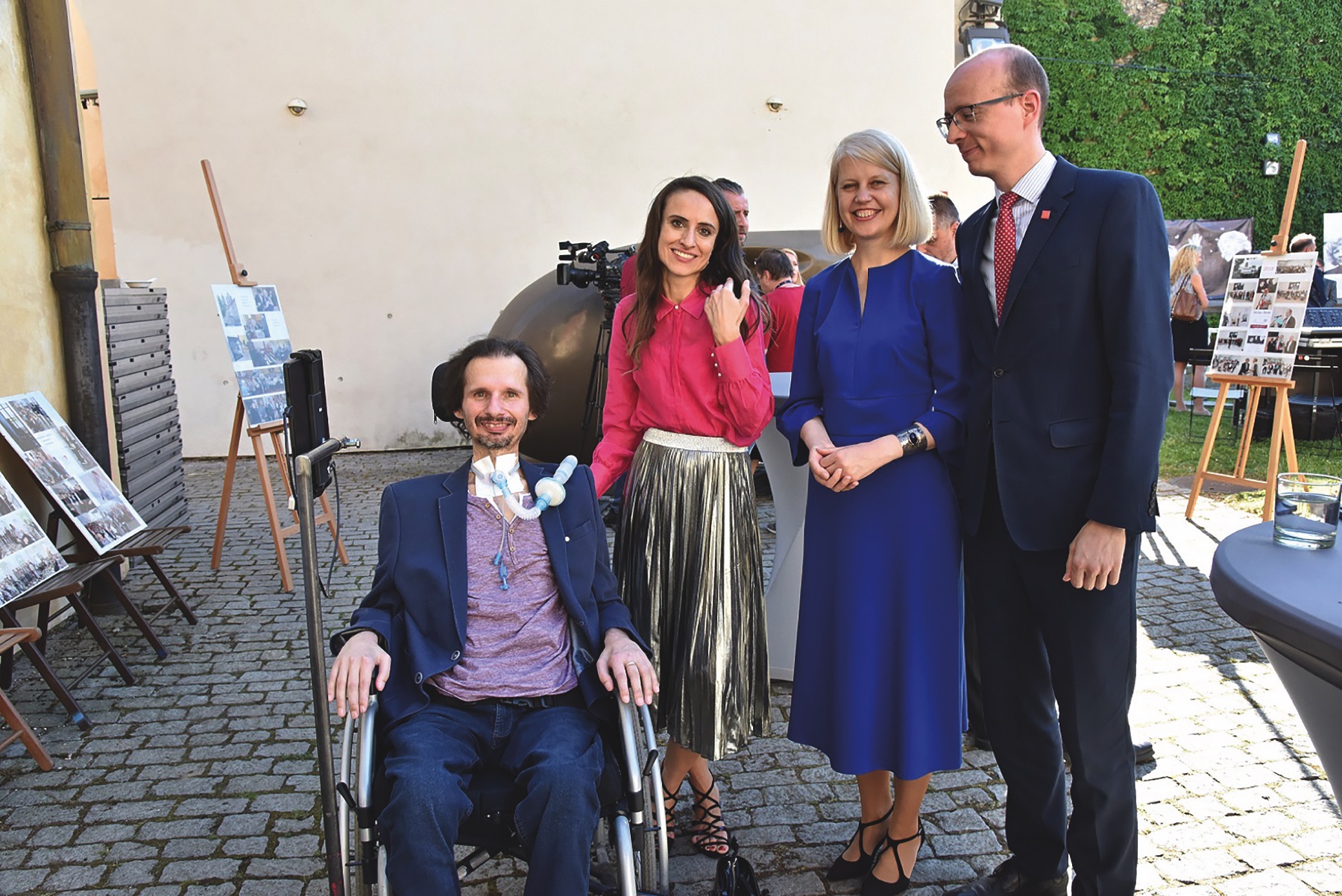
Meeting with Public Choice Award laureate Vladimír Mikuláš and his wife Denisa, Monika Granja and Martin Churavý during the ceremonial announcement of the Olga Havlová Award on June 14, 2021, in the garden of the Convent of St. Agnes of Bohemia in Prague. Photo: Zdeněk Chrapek
You have worked in the non-profit sector for over 25 years. How has it changed over time?
The non-profit sector is constantly evolving, responding to new needs and often coming up with innovative solutions. What remains unchanged is its flexibility, diversity, and the passion of the people working in it. Many times, I’ve seen non-profit organisations step in during crises when the state was hesitating. Just remember how much support NGOs provided to seniors and other vulnerable groups during the COVID-19 pandemic, or to Ukrainian refugees more recently. The sector plays a critical role during every humanitarian crisis.
The foundation helps many people. Could you give us some examples?
One example is our Education Fund, which helps young people overcome barriers to education. Our scholarship holders are students with disabilities, from socially disadvantaged backgrounds, or those who have experienced institutional care.
At this year’s Olga Havel Award ceremony, several current or former scholarship recipients performed – including pianist Tomáš Kačo, a young Romani man whom we supported during his studies at the Academy of Performing Arts in Prague. Tomáš not only had great talent but also a big dream – to conquer the world. And he did! He’s one of the few Czechs who performed at Carnegie Hall, and he now lives and performs in the United States.
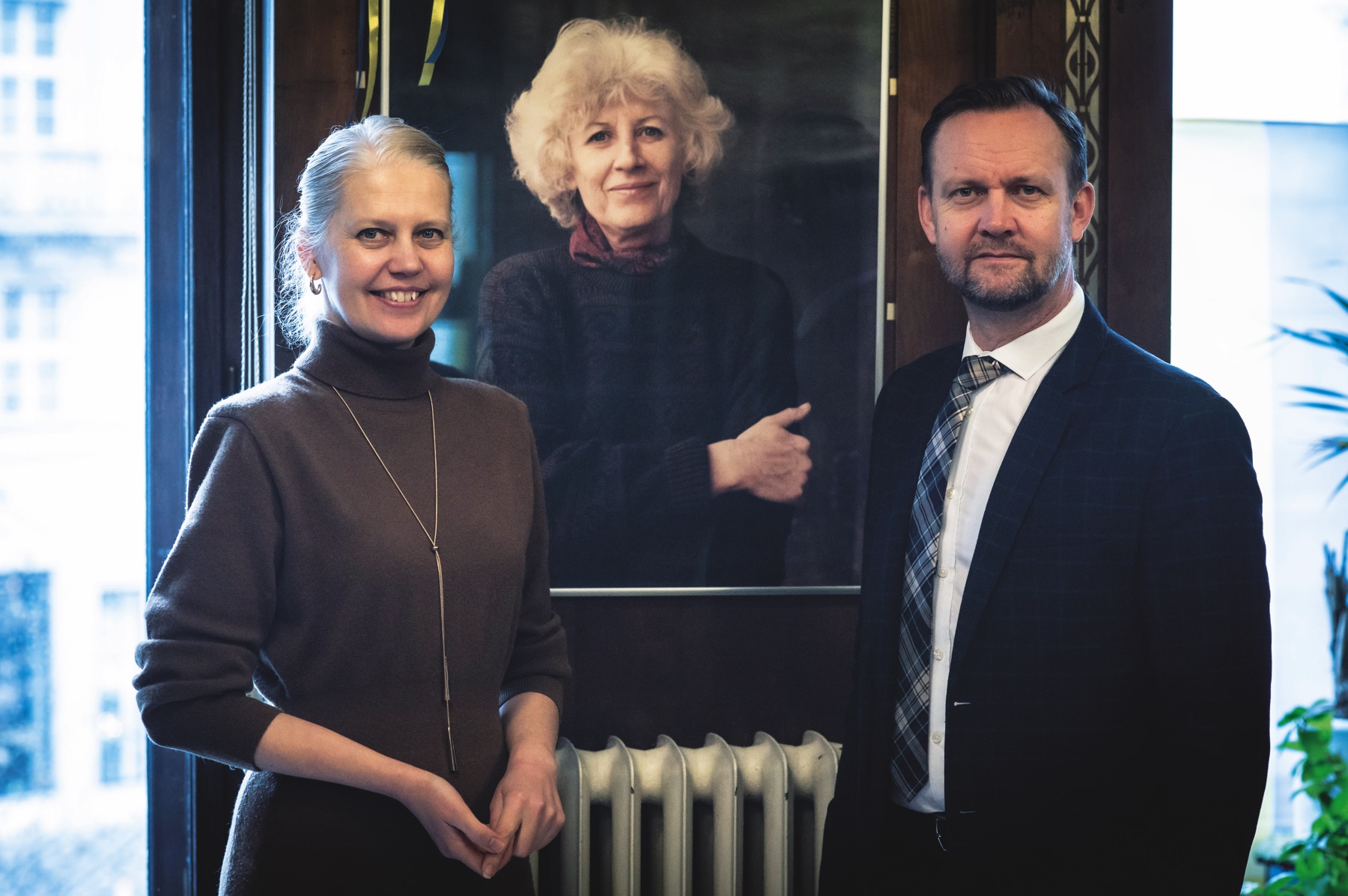
Despite having lived in the Czech Republic for over 30 years, Monika Granja does not forget her country of origin. She welcomed H.E. Ronaldas Kačinskas, Ambassador of the Republic of Lithuania to Prague, at the Committee of Good Will. Photo: Petr Vrabec
The Committee of Good Will was founded by Olga Havel, the first wife of President Václav Havel, in 1990. If she were with us today, what would she be proud of?
I believe Olga Havel would be very happy to see how many people are now involved in the work of the Committee of Good Will, and how it has remained a vibrant and active institution. She would certainly be pleased to see that goodwill continues to spread and has, perhaps without us fully realising it, become one of the pillars of Czech national identity.
And that simple, everyday acts of kindness are gradually changing the social atmosphere for the better.
What are the goals of the Committee of Good Will for the next 10 years?
For us, it’s essential to always be there for those who need our help, no matter what form that help takes. And we want to be here not only for the next 10 years but for the next 20, 50, or even 100 years. That’s why we focus on building and maintaining strong, sustainable foundations for our organisation, so that we can continue Olga Havel’s mission well into the future.

